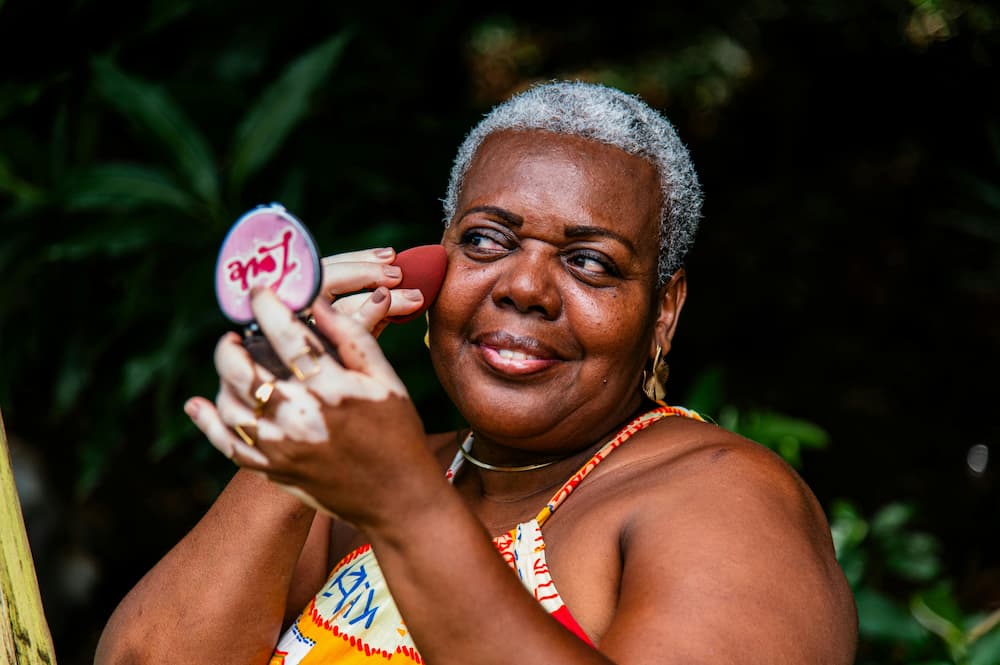When we talk about ‘empowerment’ from a feminist therapy perspective, we’re not just talking about external achievements like promotions or speaking up in meetings. We’re talking about internal shifts—feeling safe in your body, having access to your own voice, and knowing you are worthy of love and dignity even if you’re not perfect or fulfilling the expectations of others.
For many of the women and queer folks I work with, trauma—especially relational trauma—has taught them the opposite: that they’re “too much,” “not enough,” or fundamentally flawed. Because it heals trauma on a deep, somatic level, EMDR therapy is a powerful tool for feminist healing.
Trauma Isn’t Just What Happened—It’s How You Learned to Survive
Trauma isn’t always dramatic or obvious. Sometimes it’s the slow drip of years of being overlooked, dismissed, or told to make yourself smaller. Maybe you were raised to put everyone else’s needs before your own. Maybe you were taught that anger is dangerous, or that being “too emotional” means you’re unstable. Maybe you weren’t overtly abused, but you still walk around with a chronic sense of shame, self-doubt, or fear of abandonment.
From a feminist therapy lens, we understand that these aren’t just personal quirks—they’re survival strategies shaped by gender roles, power dynamics, and cultural messages about whose emotions matter and whose don’t.
EMDR therapy helps address this not just on a cognitive level, but in your nervous system, in the places where your body still holds the old stories.
Begin EMDR TherapyHow EMDR Therapy Works
EMDR stands for Eye Movement Desensitization and Reprocessing. It’s an evidence-based trauma therapy that helps you process and release memories that were never fully integrated. Instead of talking in circles about what happened, EMDR guides your brain to do what it naturally wants to do—make sense of the past so it no longer hijacks your present.
In an EMDR therapy session, we identify a memory that still feels charged. Maybe it’s the time you were shamed for expressing your needs. Maybe it’s the relationship where you kept shrinking yourself to keep the peace. We bring up the memory along with the negative belief you still carry (like “I’m too much” or “I can’t trust myself”) and use bilateral stimulation (like eye movements or tapping) to help your brain reprocess the experience.
What often happens is that people move from shame or fear to a deeper, embodied sense of truth—something like, “I am worthy of love,” or “I am brave.” These affirmations become felt experiences.

EMDR Therapy as a Feminist Tool
Feminist therapy isn’t about blaming the patriarchy for everything, but rather it’s about recognizing the ways systems shape our internal worlds. A client might come in feeling broken for being anxious in relationships, but underneath that anxiety is a history of emotional neglect, cultural gaslighting, or being rewarded for self-abandonment.
EMDR therapy supports feminist empowerment by helping clients:
- Reclaim their emotional intuition
- Unlearn survival strategies that no longer serve them
- Challenge internalized messages about worth, gender, and power
- Process memories of relational harm—whether in families, romantic relationships, or society at large
- Strengthen a sense of embodied safety and self-trust
For example, one client I worked with came in feeling ashamed of how “needy” she felt in her marriage. But through EMDR, we uncovered a long history of having to earn love by caretaking and staying quiet. As she processed these memories, something softened. Her anxiety didn’t disappear overnight, but she started to feel less ashamed of it and she began to ask for what she needed.
EMDR Isn’t Just for the ‘Big-T’ Trauma
A common misconception is that EMDR therapy is only for people with major traumatic events—abuse, accidents, violence. But therapists use EMDR all the time to work with the quieter, chronic wounds that shape how clients see themselves and move through the world.
Some of the other types of traumas we target in feminist therapy include:
- Being told you’re “too emotional” or “too sensitive”
- Learning to stay silent to avoid conflict
- Being praised for being low-maintenance or selfless
- Internalizing the belief that your worth depends on productivity or pleasing others
- Relational ruptures where you felt unseen, dismissed, or unimportant
When these experiences pile up over time, they shape your nervous system and your sense of self. EMDR helps untangle that web so you can reconnect to yourself.
Begin Trauma TherapyWhy Feminist Therapy Matters in Trauma Work
It’s not enough to help clients feel “better.” We also want to help them feel more themselves. That means supporting them in noticing the ways they’ve adapted to fit into systems that didn’t fully honor them and helping them imagine new ways of being.
Feminist therapy brings cultural context into the room. It asks, “Who taught you that being emotional is a weakness?” or “What messages did you receive about what makes you valuable?” We don’t pathologize coping mechanisms—we get curious about where they came from. And we don’t rush to fix—we hold space for grief, rage, confusion, and complexity.
When EMDR is practiced from this lens, it’s not just symptom relief. It’s liberation work.

What Empowerment Can Look Like After EMDR Therapy
After doing EMDR therapy from a feminist perspective, clients often report:
- A stronger connection to their boundaries
- Less shame around their emotions or needs
- Greater trust in their gut instincts
- The courage to speak up, even when their voice shakes
- A softer inner voice—less self-blame, more compassion
- More clarity about what they want and what they won’t tolerate
Empowerment is finally being able to live more fully as yourself.
You’re Not Alone
If you’ve been feeling stuck, anxious, or like you’re always performing for love, you’re not broken. EMDR therapy offers a path toward healing that honors both your individual story and the cultural context you’re living in. When combined with a feminist therapy lens, it becomes a powerful tool for reclaiming your voice, your body, and your truth.
You don’t have to keep living inside the stories that were handed to you. Healing is possible. And it doesn’t mean becoming a different person—it means finally becoming more you.
Get In Touch
Emma Kobil is a trauma therapist practicing online with feminist women and thoughtful couples in Colorado and Florida. Her philosophically informed therapeutic approach focuses on helping creative and perfectionist women and couples heal. Learn more about Emma, or schedule an appointment, at mindfulcounselingdenver.com.









